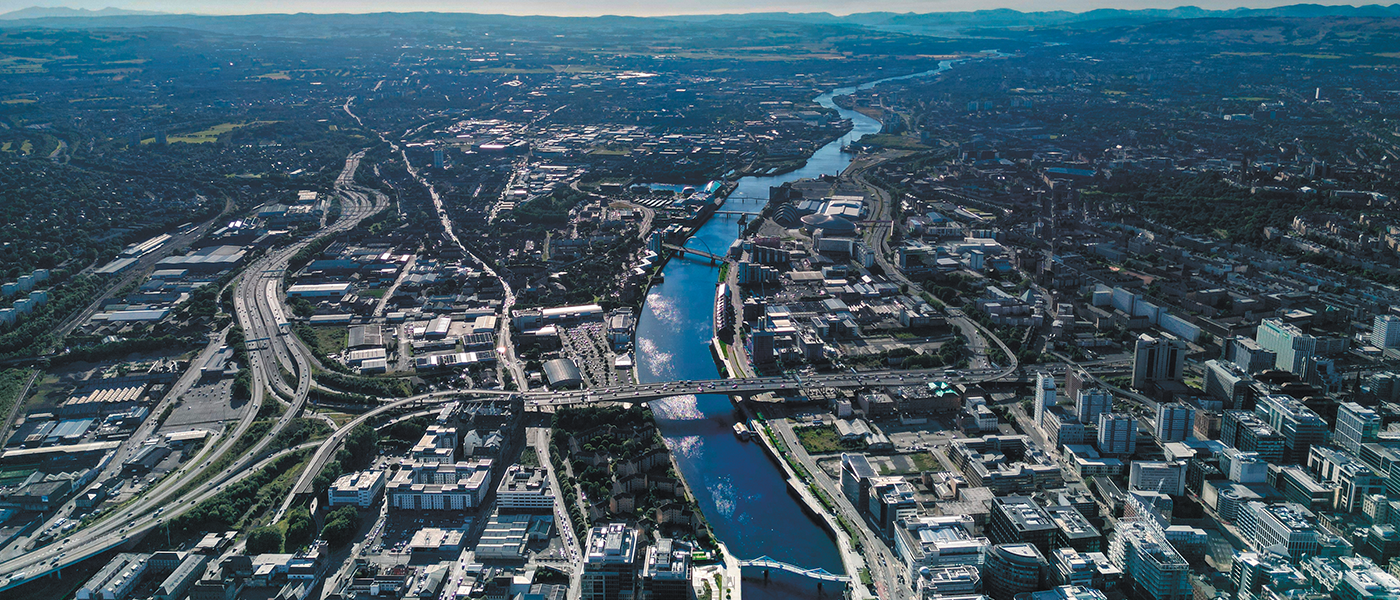UN SDG 7: Affordable and clean energy
Ensure access to affordable, reliable, sustainable and modern energy for all
Our research

The Hydrogen Innovation Centre has been established at the University of Glasgow to accelerate the development of hydrogen technologies. The centre provides a platform for academic research groups and commercial enterprises from across Scotland to take hydrogen technologies from experimental proof-of-concept through to small prototype stage.
With the Hydrogen Innovation Centre and testing facility, Scotland is poised to leverage its renewable energy resources effectively. The collaboration between academia and industry, combined with rigorous testing and analysis, will accelerate the commercialisation of hydrogen technologies. This project not only paves the way for a greener and more sustainable future but also positions Scotland as a key player in the global energy transition.
GALLANT (Glasgow as a Living Lab Accelerating Novel Transformation) is a NERC-funded (£10.2 million) partnership between the University and Glasgow City Council and will use the city of Glasgow as a living lab to trial new sustainable solutions throughout the city. GALLANT takes a whole-systems approach. While addressing the city’s key environmental challenges, we will consider the co-benefits and trade-offs for public health, wellbeing and economy. GALLANT aims to deliver the social priorities of the SDGs while remaining within the planetary boundaries of a 1.5°C world – using doughnut economics as a framework.
The programme brings together over 50 multidisciplinary researchers with 29 public and private sector partners across the city region. Together we aim not only to bring nature back into the city system, but make meaningful, lasting change that embeds sustainability across major policy decisions and empowers communities as stewards of their local places. GALLANT will work with local partners and communities to transform the city into a thriving place for people and nature. GALLANT will help Glasgow achieve its goal to be carbon neutral by 2030 and accelerate its path to climate resilience.
Learning & teaching

Our Masters in Sustainable Energy is an interdisciplinary programme that will equip students for employment within the international energy sector. It addresses all the key aspects of sustainable energy, from the most advanced technologies through to ethical and economic considerations.
The programme provides an in-depth knowledge of the social and economic drivers of the current UK and international energy industry, and insights in the behavioural, business and technical aspects concerned with energy production and distribution. Students learn a range of technical knowledge in the science and engineering of energy production and use, with emphases towards chemical, electrical and mechanical engineering, dependent on students’ preferences and past experience.
The programme is accredited in the Further Learning category by the Institution of Civil Engineers, the Institution of Structural Engineers, the Institute of Highway Engineers, the Chartered Institution of Highways & Transportation and the Institution of Engineering & Technology.
Find out more
University operations

Our Estates teams continue to improve the energy sustainability of our historic estate, working closely with Glasgow City Council and stakeholders across the city region. We will continue to contribute to and benefit from collaborative initiatives such as improved public transport, joined-up active travel provision and low-carbon district heating networks, an area where we continue to discuss the potential for a more holistic, whole-systems approach to energy use. We will continue to foster green spaces and biodiversity on the University’s campuses. We will utilise our campuses to showcase our approach to environmental sustainability, making particular use of the University’s 850-acre farm at Cochno Farm.

GALLANT, our partnership with Glasgow City Council, will work with local partners and communities to transform the city into a thriving place for people and nature.
Civic engagement

Our academics are working with a unique solar-powered mobile music recording and live production studio called the Phonoautobothy, that will power a number of music events in Glasgow.
Built using upcycled materials by the Idlefield Art Lab collective from Canada, the Phonoautobothy aims to showcase sustainable power generation for live and recorded music while engaging local communities around Glasgow’s ambitious net zero goals.
Professor Matt Brennan and Dr Graeme Hunt, both based at Glasgow, are leading on a groundbreaking ‘Dear Green Music Scene’ project, working together with Idlefield Art Lab on the Phonoautobothy.
Live music festivals and outdoor performances traditionally rely on polluting diesel generators. The Phonoautobothy is an entirely solar-powered recording studio capable of producing high-quality recordings and powering live performances off-grid. It has appeared at events including WestFest, the Belle & Sebastian Weekender Festival and Doors Open Days from June through September, as well as workshops at inclusive arts charity Beatroute Arts.



















